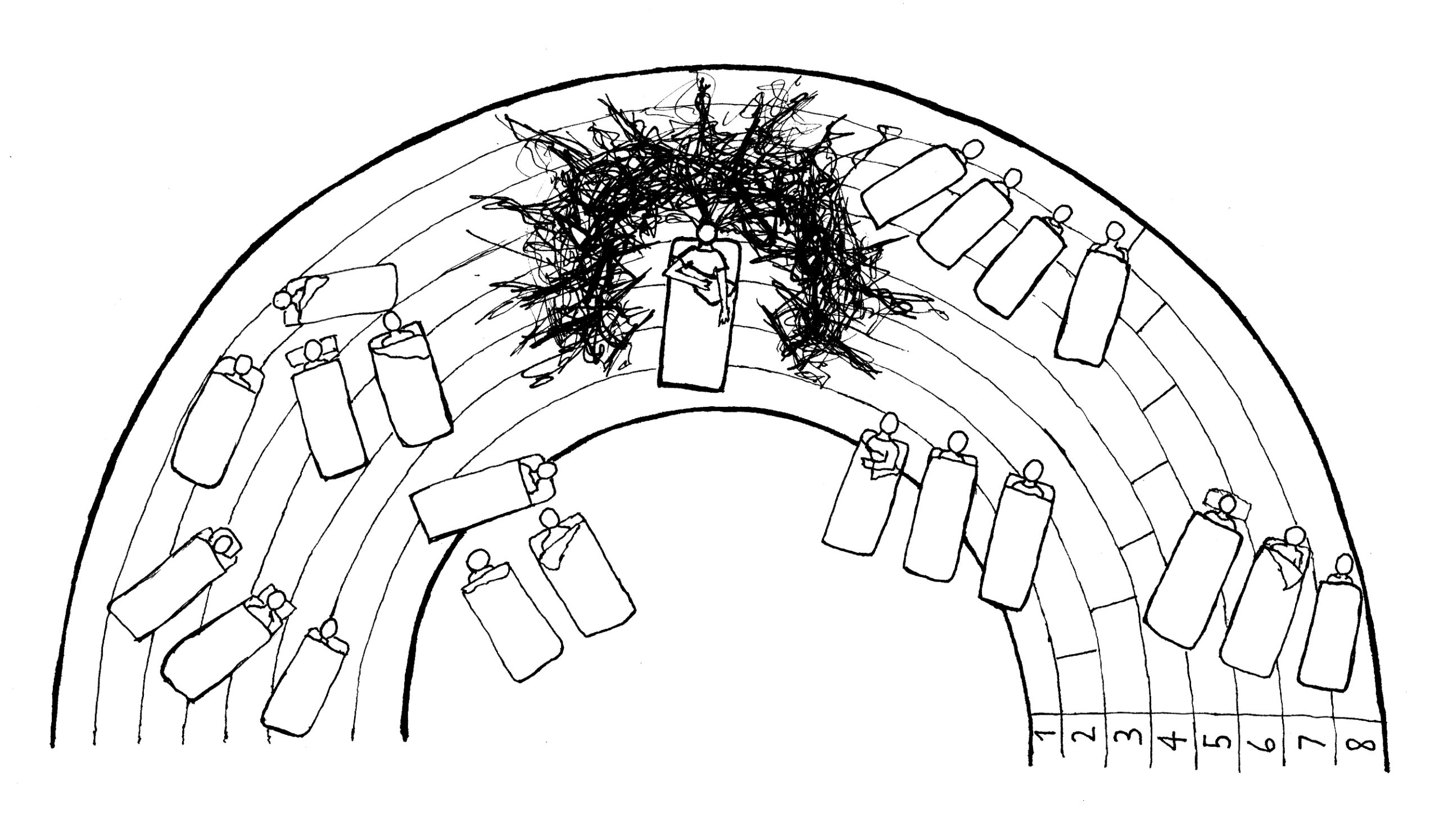Visions of Bowdoin: how my mental health dictates my experience
November 9, 2018
I thought that I wouldn’t think about suicide anymore if I got into Bowdoin. All this high school stuff was to be left in the past, and I would be a better, less jaded, more upbeat person. I have always craved solitude, and my visions of Bowdoin were of myself taking on the world alone. Writing, reading, exploring the outdoors, partying, having the experiences that one associates with the best parts of college—perhaps surrounded by people, maybe even friends—but existing alone. I wanted to live within my own head and not associate the lives of others with my own.
I think I need to walk back my first line.
Intrusive thoughts are something I’ve struggled with for my whole life. I am a worrying person, preoccupied with my own thoughts, often anxious. I feel like I can go hours, if not days or even months, dealing with the same preoccupations and emotions. Intrusive thoughts don’t exactly feel as if there’s a beginning or an end, but are more of a cycle. I don’t know exactly where it starts, but I just know when I’m feeling it. And when they start, I cannot tell when they will end.
So when I say I thought I wouldn’t think about suicide if I got into Bowdoin, it’s more along the lines that I thought my intrusive thoughts would end. For a period during my senior year of high school, I had a few months where I felt intrusive thoughts about suicide. I was horrified by the thought of it—but it was the concept of suicide that would plague me, the abstract thoughts of it. It would pop up when I walked from my car to school in the mornings, sitting with friends at lunch, the day I got into college. It was as disorienting as it was frightening, having thoughts butting heads for such an extended period of time.
I thought that separation from my life at home would put an end to my intrusive thoughts: new location, new me. But there I was, lying on the Farley Field House floor, feeling as far away from my former life as possible—and absolutely miserable. Although suicide was no longer the predominant theme of my intrusive thoughts, I still was unable to shake negative thoughts or memories when they came into my head. I spent that night having my own little freak out about how I treated a friend of mine poorly when I was a sophomore in high school. It’s comical to even write about when it’s in the past tense, but I didn’t sleep a minute that night.
The moment I got back from my Orientation trip, I went to the counseling center. As much as I thought getting into Bowdoin would be relieving, in the sense of escaping the college application process, my mental health remained the same. I went to a therapist weekly over the last two years of high school and found that it was only sort of helpful for me. I feared fully expressing my emotions, which in hindsight seems absurd to me. How bad were things if I wasn’t even able to communicate how I felt to a therapist?
Therapy at Bowdoin has been very helpful for me. I go weekly and often find myself looking forward to my meeting, sometimes days in advance. It provides a place for me to express myself, to explain my thoughts and fears, rational or irrational, manageable or intrusive. I feel more calm and composed and far less erratic and irritable. It’s a vital resource for me.
I also realize that the preconceptions I held on solitude were absolutely absurd. They were based in the feelings I felt of being totally lonely while surrounded by friends and people I loved, a struggle that many go through. The answer to such a feeling is not removing yourself from the environment. I’m not saying there is one answer for this feeling, but for me, expressing my thoughts out loud is my mechanism of processing them. I want to verbalize my feelings, so that I can start to work on a meaning.
What I’m getting at is the necessity of emphasizing that mental health issues should be talked about. There is no one face of mental health, even if your immediate association of mental health issues are with a specific ethnicity, gender, race, sexuality, etc. The face of mental health issues isn’t someone who is constantly talking about self-care and the importance of drinking tea, who seems to express an inhuman amount of positivity. Nor is it some brooding guy who solely listens to Elliott Smith, Earl Sweatshirt and Mount Eerie and is probably “getting really into nihilism.” The issues of mental health permeate all communities throughout Bowdoin.
That being said, those who are struggling with mental health issues should not be forced to discuss their problems. Nobody has to discuss anything they don’t want to. What people need to be able to do is to be open to having someone tell you about how you feel. For many men, including myself, it’s difficult to conceptualize discussing mental health. But talking about feelings absolutely does not show weakness. It shows a level of self-awareness that many lack in our society.
My personal experiences are not applicable to everyone who deals with mental health issues, but the empathy to listen to the experiences of others is something that everyone within the Bowdoin community should possess.
Sebastian de Lasa is a member of the class of 2022.


Comments
Before submitting a comment, please review our comment policy. Some key points from the policy: